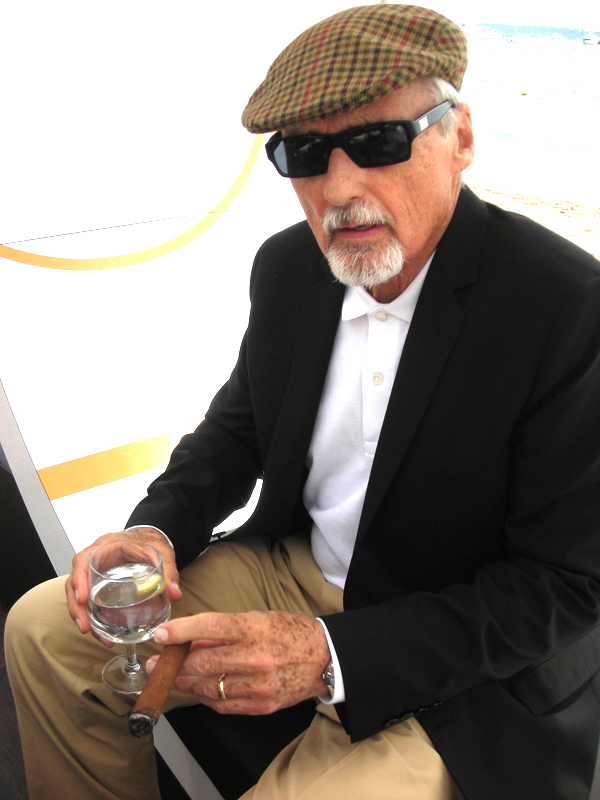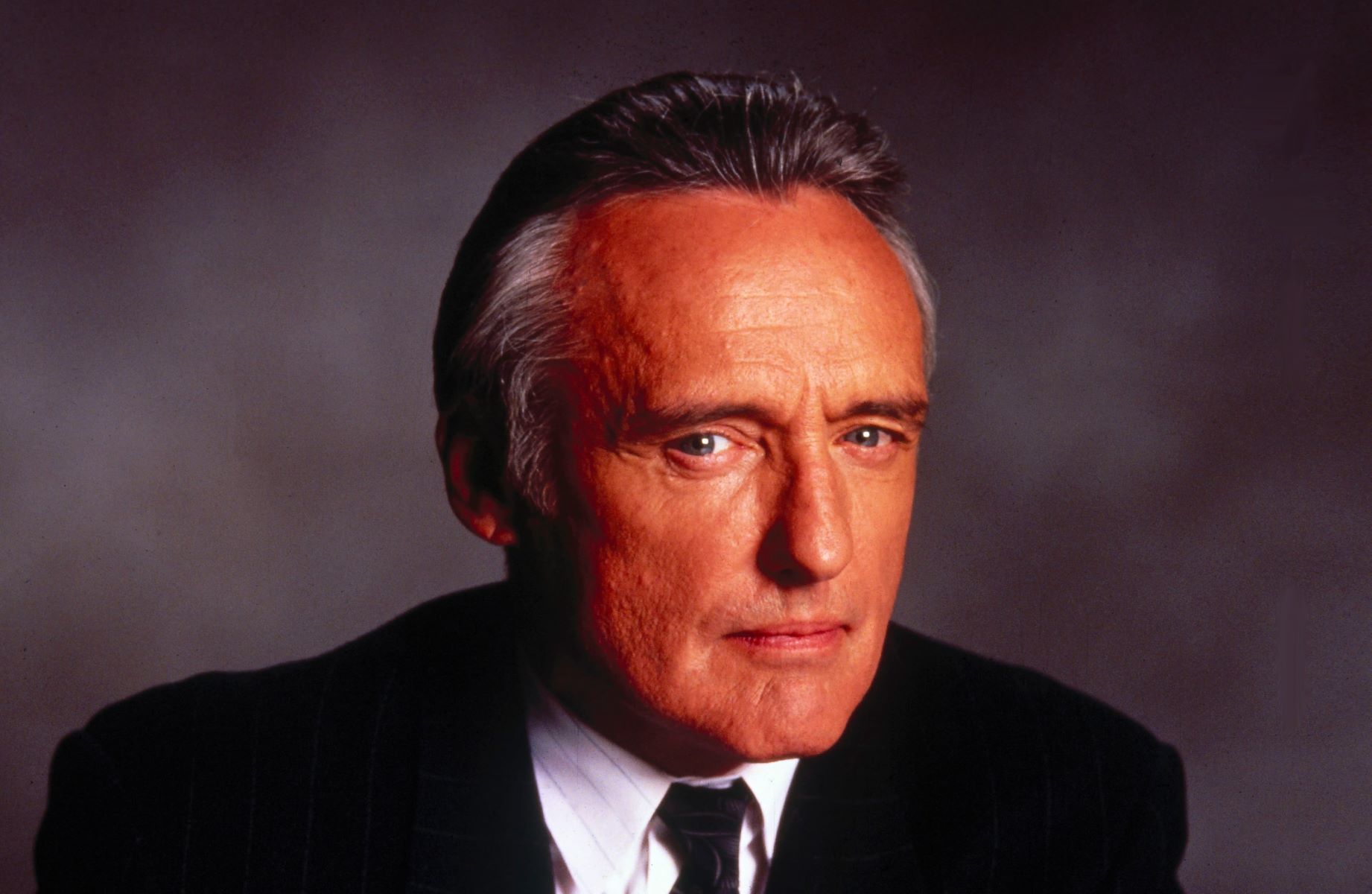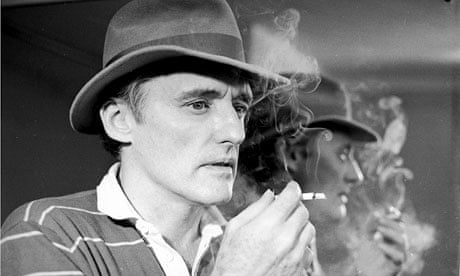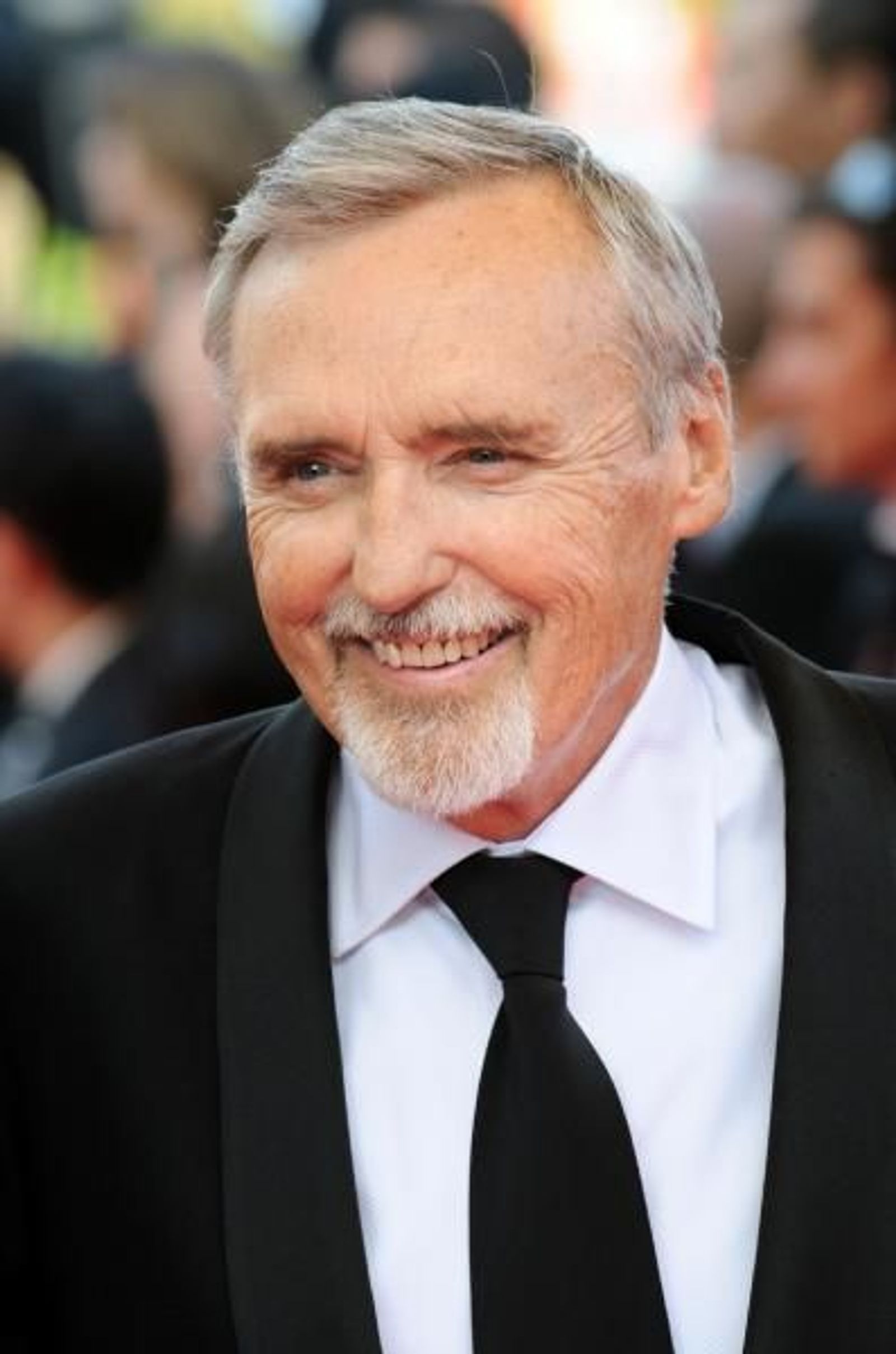Dennis Hopper
Dennis Hopper

Dennis Lee Hopper was born on May 17, 1936, and he passed away on May 29, 2010. He was an American actor and film director known for his portrayals of mentally disturbed outsiders and rebels. Hopper's career was marked by numerous accolades, including prizes from prestigious film festivals such as Cannes and Venice, along with nominations for Academy Awards, a Primetime Emmy Award, and Golden Globe Awards. Apart from acting, Hopper also pursued a prolific and acclaimed photography career starting in the 1960s.
Hopper began his acting studies at the Old Globe Theatre in San Diego and later at the Actors Studio in New York. His first television appearance was in 1954, and he gained early recognition for his roles in iconic films like Rebel Without a Cause (1955) and Giant (1956), both of which starred James Dean.
Throughout his career, Hopper appeared in a variety of notable films, including Gunfight at the O.K. Corral (1957), The Sons of Katie Elder (1965), Cool Hand Luke (1967), Hang 'Em High (1968), and True Grit (1969). However, it was his directorial debut with Easy Rider (1969), which he co-wrote with Peter Fonda and Terry Southern, that brought him significant acclaim. The film earned him a Cannes Film Festival Award and an Academy Award nomination for Best Original Screenplay.
Despite his success as a director, Hopper was often typecast as mentally disturbed characters in films such as Mad Dog Morgan (1976), Apocalypse Now (1979), Rumble Fish (1983), and Blue Velvet (1986). He received an Academy Award nomination for Best Supporting Actor for his role in Hoosiers (1986).
In addition to acting and directing in films, Hopper also directed several other notable works, including The Last Movie (1971), Out of the Blue (1980), Colors (1988), and The Hot Spot (1990). He received a Primetime Emmy Award nomination for his role in Paris Trout (1991) and appeared in various television roles throughout his career, including in Doublecrossed (1991), 24 (2002), E-Ring (2005–2006), and Crash (2008–2009).
Hopper's contributions to both film and television left a lasting impact on the entertainment industry, solidifying his status as a legendary figure in American cinema.
Dennis Lee Hopper was born on May 17, 1936, in Dodge City, Kansas, to Marjorie Mae (née Davis) and James Millard Hopper. His mother, Marjorie, passed away on January 12, 2007, while his father, James, passed away on August 7, 1982. Hopper had Scottish ancestry and grew up with two younger brothers, Marvin and David.
After World War II, the Hopper family relocated to Kansas City, Missouri, before eventually settling in San Diego, California. In San Diego, Hopper attended Helix High School, where he was active in various extracurricular activities such as the drama club, speech, and choir. He was voted "most likely to succeed" by his peers. During his time in high school, Hopper developed a keen interest in acting and began studying at the Old Globe Theatre in San Diego. He later continued his acting studies at the prestigious Actors Studio in New York City, where he studied under the renowned acting coach Lee Strasberg for five years.
Hopper's passion for art was influenced by his friendship with actor Vincent Price, and he developed a particular fondness for the works of William Shakespeare. His upbringing and early experiences laid the foundation for his future career in acting and filmmaking, shaping him into the iconic figure he would become in the entertainment industry.
Dennis Hopper's early career in Hollywood was marked by notable collaborations and influential experiences. While reports suggested he had an uncredited role in Johnny Guitar in 1954, Hopper himself denied being in Hollywood at the time of the film's production. However, he made his official film debut in two roles alongside James Dean, whom he greatly admired, in Rebel Without a Cause (1955) and Giant (1956). The tragic death of James Dean in a car accident deeply affected Hopper, and it was during this time that he clashed with director Henry Hathaway on the set of From Hell to Texas (1958), leading to a strained relationship and a prediction from Hathaway about Hopper's career prospects in Hollywood.
In 1956, while Elvis Presley was filming his first movie in Hollywood, Hopper became roommates with actor Nick Adams, and the two struck up a friendship. Hopper later moved to New York in 1959 to study Method acting under Lee Strasberg at the Actors Studio, further honing his craft. His breakout lead role came in 1961 with Night Tide, a supernatural thriller involving a mermaid in an amusement park.
Hopper credited John Wayne with reviving his career after a period of insolent behavior led to a seven-year struggle to find work in Hollywood. Wayne, who was a friend of Hopper's mother-in-law, actress Margaret Sullavan, hired Hopper for a role in The Sons of Katie Elder (1965), directed by Hathaway. This opportunity allowed Hopper to restart his film career.
In addition to his film work, Hopper appeared in numerous television shows, including episodes of Gunsmoke, Bonanza, The Twilight Zone, and The Rifleman. He had over 140 television credits to his name, showcasing his versatility as an actor across various genres and formats.
Dennis Hopper's career reached a significant turning point with the release of Easy Rider in 1969, a film that he co-wrote, directed, and starred in alongside Peter Fonda and Jack Nicholson. The film, which explored themes of freedom, rebellion, and the counterculture movement, earned Hopper wide acclaim for his innovative directing style and improvisational methods. However, behind the scenes, the production was fraught with challenges, including creative differences and personal conflicts among the cast and crew. Hopper's escalating drug and alcohol abuse also contributed to the tumultuous atmosphere surrounding the film.
Easy Rider not only showcased drug use on screen but also depicted the hippie lifestyle, making it one of the first films to do so. Hopper's portrayal of a rebellious outsider resonated with audiences, and he became a symbol of the counterculture movement of the 1960s. However, despite the film's success, Hopper struggled to capitalize on its acclaim, facing challenges in both his personal and professional life.
In 1970, Hopper filmed The Last Movie, his follow-up to Easy Rider, but the film's unconventional narrative and experimental style puzzled audiences and failed to replicate the success of his previous work. Despite winning an award at the Venice Film Festival, The Last Movie was poorly received by critics and audiences alike, leading to disappointment for Hopper and studio executives.
Throughout the 1970s, Hopper continued to act in a variety of roles, often portraying tormented or manic characters in low-budget and European films. His career experienced a resurgence in the late 1970s and early 1980s with notable performances in Apocalypse Now and Out of the Blue. However, it was his role as the unhinged villain Frank Booth in David Lynch's Blue Velvet that truly revitalized his career in 1986. Hopper's portrayal of Booth garnered critical acclaim and solidified his reputation as a versatile and talented actor.
Despite his struggles with substance abuse and personal demons, Hopper's talent and charisma continued to shine through in his performances, earning him recognition and admiration from audiences and critics alike.
References
- "Dennis Hopper". The Daily Telegraph. London. May 30, 2010. Archived from the original on January 11, 2022.
- ^ "The Dennis Hopper Photograph That Caught Los Angeles". The New Yorker. May 12, 2022. Retrieved May 14, 2022.
- a b Nordine, Michael (March 14, 2017). "Netflix Acquires 'The Other Side of the Wind,' Orson Welles' Unfinished Swan Song".
- ^ Nordine, Michael (June 21, 2016). "Dennis Hopper's 'The Last Film Festival' Acquired by Monterey Media – IndieWire".
- ^ Staff (March 11, 2008). Dennis Hopper – Republican Hopper considers a vote for Obama. ContactMusic.com. Retrieved 2010-05-29.
- ^ Philip Sherwell; Robert Mendick (May 29, 2010). "Dennis Hopper: Born to be wild". The Daily Telegraph. London. Archived from the original on January 11, 2022. Retrieved September 6, 2010.
- ^ Greenstreet, Rosanna (February 21, 2009). "Q&A". The Guardian. London.








































